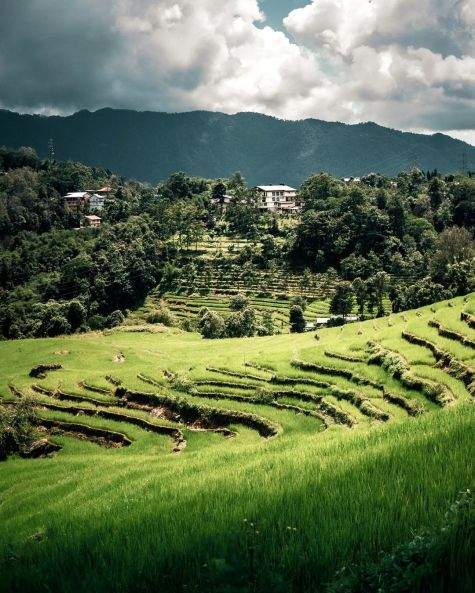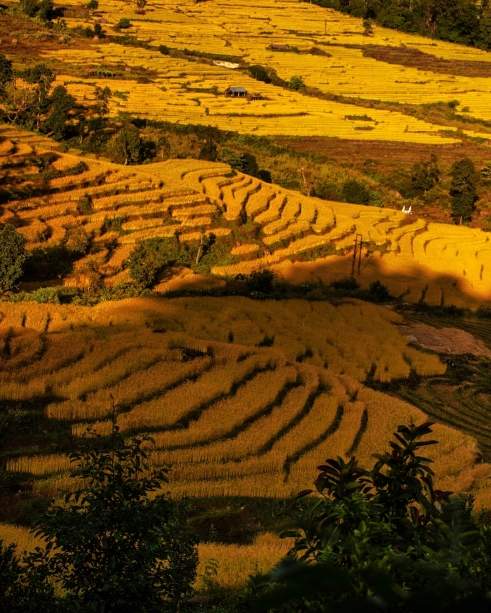How Sikkim became the first organic state in 2016 in the world, paving the way for generations.
Sikkim's remarkable transformation into India's first fully organic state in 2016 is a testament to the state's resilience and commitment to sustainability. Nestled between Nepal, Bhutan, and Tibet, Sikkim, once considered among the poorest states in India, emerged as a beacon of hope for sustainable development.
Today, all 76,000 hectares of farmland in Sikkim are certified organic, marking a monumental achievement. This transformative journey extends beyond organic production, encompassing socio-economic aspects such as market expansion, consumption patterns, sustainable tourism, and comprehensive rural development.
Strategic Initiatives: A Road map to Organic Transformation
Guided by the visionary 'Sikkim Organic Mission,' the state embarked on a challenging journey to convert 50,000 hectares of land to organic by 2015. With strong government support, 66,000 farmers were equipped with a robust policy framework and guidance in adopting agro-ecological farming practices. Despite initial setbacks, including crop failures and a decline in sustainable agricultural production, the state persisted in its commitment to organic practices.
The 'Sikkim State Organic Board,' formed in 2003, played a pivotal role in implementing crucial policy measures. These measures included increasing taxation on chemical fertilizers and pesticides, importing non-organic vegetables from other states, supporting the use and production of organic fertilizers and seeds, and comprehensive capacity-building programs for extension officers, farmers, and the youth.
In 2010, the 'Sikkim Organic Mission' intensified efforts to bring the entire state under organic cultivation. Actions under this mission included the establishment of farmer field schools, international standard certifications through the Sikkim State Organic Certification Agency (SSOCA), consumer education, the creation of local organic outlets, export market development, public procurement of organic products, and the integration of organic farming into the school curriculum.
Sikkim's Global Impact and Recognition
Sikkim's success has not gone unnoticed globally. The state's model, intertwining ecotourism with organic farming, has not only attracted tourists but also stimulated the tourism industry by nearly 50%. Recognizing the potential of Sikkim's organic produce, several countries have expressed interest, although challenges in infrastructure hinder optimal commercialization.
In the pursuit of global sustainability goals, Sikkim's organic revolution aligns with efforts to achieve 'Zero Hunger' by 2030. Non-government organizations, including Welthungerlife, have worked tirelessly to support regions in adopting Sikkim's organic model through policy changes and public extension systems.
While Cuba may have been the first to adopt large-scale organic farming due to trade embargoes, Sikkim holds the unique distinction of being the only democratic state in the world to voluntarily embrace complete organic cultivation.
In the words of Philippe Dresrüsse, Expert Program Coordination, Welthungerhilfe India, "Sikkim proved to be a leader in promoting sustainable development through agroecology. It shows us that returning to an ecologically balanced world is definitely possible." The organic experiment in Sikkim has yielded early successes, including an increase in wildlife and bee populations, the revitalization of arid soil, and a surge in butterfly species in cultivated areas, showcasing the mutual benefits of organic agriculture and wildlife.
Sikkim's organic revolution has not only elevated the state's economic standing but has also contributed to a paradigm shift in the global approach to sustainable and organic agriculture. The state's commitment to interconnection rather than competition between humankind and nature could serve as a blueprint for a sustainable path as the world grapples with climate change and the need to redefine its priorities.
Resources :
India’s organic state is showing the way. Welthungerhilfe.de – Für eine Welt ohne Hunger und Armut. (n.d.). Retrieved March 27, 2022, from https://www.welthungerhilfe.org/news/latest-articles/indias-organic-state/#:~:text=In%202010%2C%20the%20Sikkim%20Organic,organic%20status%20by%20December%202015.
How sikkim in India became World’s first Fully Organic State. South China Morning Post. (2020, March 18). Retrieved March 27, 2022, from https://www.scmp.com/magazines/post-magazine/travel/article/3074689/sikkim-india-worlds-first-fully-organic-state-might.
Contributed by Ingrid Heindorf World Future Council (WFC), Ingrid Heindorf World Future Council (WFC), & (WFC), W. F. C. (2019, March 26). Sikkim’s state policy on organic farming and Sikkim Organic Mission, India. PANORAMA. Retrieved March 27, 2022, from https://panorama.solutions/en/solution/sikkims-state-policy-organic-farming-and-sikkim-organic-mission-india.
Figure 2. photo: Sikkim Martam farm. Pagel Lepcha. (2019, November 16). https://www.instagram.com/p/B470AGBHwdt/
Figure 3. photo: Martam rice valley. Pagel Lepcha. (2021, September 8). https://www.instagram.com/p/CTjwTpPnXid/

